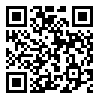BibTeX | RIS | EndNote | Medlars | ProCite | Reference Manager | RefWorks
Send citation to:
URL: http://jhbmi.ir/article-1-278-en.html
Introduction: Different factors are effective in detecting heart abnormalities. The greater the number of these factors, the greater the uncertainty in the detection of heart abnormalities. In the uncertainty condition in response of prediction model, the fuzzy systems are one of the most effective methods for generating an acceptable response.
Method: In this applied study, 3240 records related to heart abnormalities were reviewed, each record contained heart sounds of healthy and unhealthy groups. Then, using fuzzy system, the rules of data for the input samples were extracted and the rules were used to categorize the heart abnormalities. Due to the dependency of the effective factors on heart abnormalities, many identical rules with a similar function that result in additional processing and reduced efficacy, will be produced. In the proposed method, the Hummingbird algorithm were used to choose the optimal output rules. Then, using the optimum output rules, the inputs data were categorized into normal and abnormal classes. Data were analyzed using the root mean squared error (RMSE) method.
Results: It was revealed that the mean accuracy and time of diagnosis of heart abnormalities in the proposed method were 99.6% and 0.56 seconds, respectively, indicating higher efficiency compared to the other similar studies.
Conclusion: Compared to the other methods, the proposed model provides more accurate diagnosis and classification.
eprint link: http://eprints.kmu.ac.ir/id/eprint/31510
Received: 2018/02/12 | Accepted: 2019/01/7
| Rights and permissions | |
 |
This work is licensed under a Creative Commons Attribution-NonCommercial 4.0 International License. |




